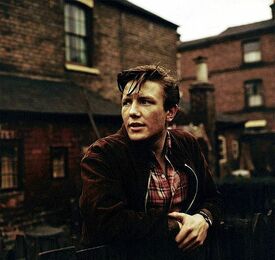 Saturday Night and Sunday Morning (1960) Saturday Night and Sunday Morning (1960) LONDON, ONTARIO – At this squalid juncture in our cultural decline when it’s way too dangerous to let anyone host the Oscars because they might actually say something, and when a venomously narcissistic twit named Jussie Smollett has clearly won every acting award of any contemporary significance anyway (“an arresting performance,” declared the Chicago Police Department), let me acknowledge an acting milestone of considerably more value to the world and infinitely more interest to me. This week Hermaneutics pays tribute to the outstanding career of the great British stage and film actor, Albert Finney (1936–2019) whose death earlier this month at the age of 82 provoked way too little commemoration and reflection. Classically trained at the Royal Academy for Dramatic Art, Finney first trod the boards professionally at the age of 20 in a production of She Stoops to Conquer and four years later made his cinematic debut in two notable British films of 1960, playing Laurence Olivier’s son in The Entertainer and a rabble-rousing Lothario of a factory worker in his real breakout movie, Saturday Night and Sunday Morning. Both those films were directed by Tony Richardson and by appearing in these back-to-back adaptations of a play and a novel by literary bad boys, John Osborne and Alan Sillitoe, the thimble-deep reviewers of the day couldn’t resist lumping Albert Finney in with the “angry young man” movement, then having its rather silly moment in the sun. Such lazy, knee-jerk coverage planted within the young actor’s heart a lasting aversion to playing along with the uncomprehending gossips and hacks who crank out entertainment fodder for the popular press. Finney was nominated five times for Oscars but never took one home and to all appearances, that seemed to be perfectly all right with him. Perhaps one reason why Finney never won an Oscar was because he could never be bothered to attend the interminable annual ceremony at L.A.’s Dorothy Chandler Pavilion. The thrice-married actor was known to have a low boredom threshold and in his determination to play out his career on his very own terms, he avoided all the usual games of career advancement. He wouldn’t lift a finger to seek out the perks or trinkets of acclamation and if you offered him one anyway, he might well tell you to go stuff yourself. Early on Finney scored a huge West End hit in the title role of Keith Waterhouse’s Billy Liar but hungry for a fresh challenge, he soon handed over the part to a grateful Tom Courtenay who then went on to star in John Schlesinger’s sublime 1963 film version, playing alongside virtually all of Finney’s former stage-mates. Decades later these two roughly contemporaneous actors shared top billing in the 1983 production of Ronald Harwood’s The Dresser (a magnificent study of the stresses and shabby glory of a down-at-the-heels Shakespearean repertory troupe on a provincial tour during the bombing raids and blackouts of World War II; a film which belongs in either actor’s top five pile of cinematic accomplishments) and 1998’s A Rather English Marriage (a more contrived but still eminently watchable Granada TV adaptation of the Angela Carter novel about two equally proud but wildly incompatible widowers who cohabitatively prop each other up). Finney hated giving interviews throughout his career and would commit to nothing more than the barest minimum when it came to undertaking any sort of promotion for newly released films; admirably managing in this way to keep any political theories and opinions he might have harboured to himself. He even said, “No, thank you,” to no one less than Queen Elizabeth herself when he turned down a knighthood around the turn of the century. Again, early on in his career, he declined to play Lawrence of Arabia for David Lean because the proffered contract would have tied him to the same overbearing producer (a certain Sam Spiegel) for five years. His disdain for multi-picture deals kept him free for stage work which he would devote himself to for two and three years at a stretch and let his film career go hang. 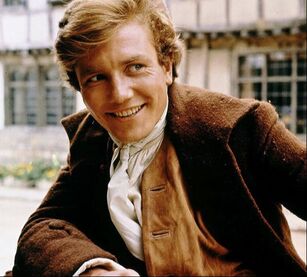 Tom Jones (1963) Tom Jones (1963) His first Academy Award nomination was for his starring role in 1963’s Tom Jones (again directed by Tony Richardson and scripted by John Osborne) which picked up that year’s Oscar for Best Movie. A razzle-dazzle sensation in its day – and mostly remembered for a lasciviously wordless dining room scene in which Finney and Susannah York devour each other with their eyeballs while dismembering, gnawing and gorging away at various juicy dishes – Tom Jones hasn’t aged particularly well and Finney himself denounced it for the skimpiness of its script which all but ignored the Henry Fielding novel and its too-heavy emphasis on cinematic trickery. “I just felt I was being used,” he said. “I wasn’t involved. I was bored most of the time”. The very next year, Richard Lester employed many of Tom Jones’ jokey, quick-cut arsenal of tricks in the service of a far better story in The Beatles’ first and faraway finest flick, A Hard Day’s Night. Throughout a film career that almost spanned half a century – taking him from an impishly handsome roaring boy with a wicked gleam in his eye to a sadder, beefier veteran of life in whom strong passions still contended – Albert Finney took infinite care in choosing his roles and liked nothing better than to hurl himself into a good rich character with a capacity to move you and surprise you. It is understandable that he was attractive to younger, up and coming directors and was willing to sign on with them – such as the Coen Brothers in Miller’s Crossing (1987) and Tim Burton in Big Fish (2003) – if their projects struck him as worthwhile. 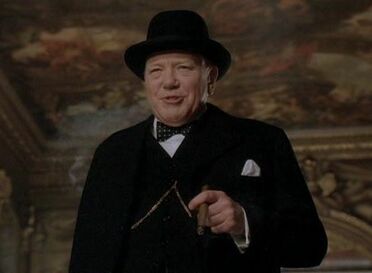 As Churchill in The Gathering Storm (2002) As Churchill in The Gathering Storm (2002) I am far from alone in regarding Finney as one of the very finest film actors of his generation and agree with some of the general critical consensus about his greatest performances, such as the aforementioned Saturday Night and Sunday Morning and The Dresser. Another widely hailed performance that garnered him an Emmy was in HBO’s 2002 account of Winston Churchill’s ‘wilderness years’, The Gathering Storm, which is an absolute tour de force that makes Gary Oldman’s Oscar-winning turn as Churchill in last year’s Darkest Hour look like a better-than-average episode of Mr. Dressup. Conversely, he performed in a handful of major blockbusters that were highlighted in his obituaries but which I don’t have much use for – such as his 1974 appearance as a heavily made-up Hercule Poirot in Murder on The Orient Express and (a film I refuse to see) his portrayal of Daddy Warbucks in the 1982 musical, Annie. Likewise I have resisted a bunch of his later cameo performances in such popular dreck as Oceans Twelve, The Bourne Ultimatum and The Bourne Legacy. I only wish I had also avoided his final screen appearance in 2012’s bloated Bond thriller, Skyfall; a film I remember nothing about except an overwhelming impression of noisy and preposterous unpleasantness. Sure, I can be a bit of a snob about what movies I’ll grace with my attendance but I begrudge none of these odious tub-thumpers their right to exist as they gave one of my favourite actors such bounteous pay-cheques that he could afford to participate in far worthier fare. Let me close this essay with recommendations for two of the more commonly overlooked films from the middle of his career that I think rank with his very best and deserve another viewing. 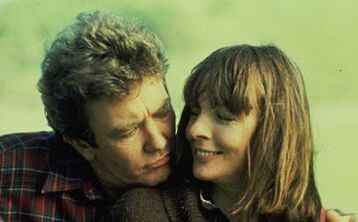 With Diane Keaton in Shoot the Moon (1982) With Diane Keaton in Shoot the Moon (1982) The first is 1982’s Shoot the Moon, directed by Alan Parker and also starring the often-flighty Diane Keaton in her most grounded performance, as the wife of a career-obsessed writer whose egocentric dalliance with a younger cookie who thinks he’s oh-so-groovy, totals their marriage and turns his children against him. This is the last Finney performance where he still has some of the irrepressible spark of youth and it’s appalling to watch how that energy misfires when he starts to apprehend the damage he’s doing to these people he still loves but cannot continue to live with. In one heartbreaking scene where it momentarily seems they might be able to save their union after all, Finney’s character compliments his wife on how charming she’d been to a gentleman they just met. “Strangers are easy,” she tells him in a desolate voice which reveals that any such healing magic is now beyond reach for them. Shoot the Moon is the most powerful cinematic depiction I’ve ever seen of the devastation of divorce. 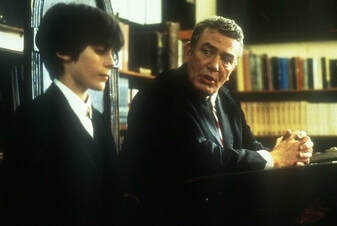 With Ben Silverstone in The Browning Version (1994) With Ben Silverstone in The Browning Version (1994) And maritally speaking, I’m afraid that things aren’t much sunnier in my other recommendation, 1994’s production of Terence Rattigan’s classic play, The Browning Version, directed by Mike Figgis. Here Finney plays Andrew Crocker-Harris, a classics master at a private boys’ school who is retiring early for health reasons and must contend with a contemptuous headmaster who’s screwing him out of any sort of pension, a bitter and unfaithful wife who’ll seemingly do anything to sabotage his happiness and sense of worth, and a couple hundred students who fear and loathe him and have nicknamed him the ‘Himmler of the lower fifth’. We come to understand all too well why his headmaster and students scorn him. Capable of great scholarship, he has become a pedantic cold fish. The headmaster favours those teachers who will bring popularity and renown to the school. And only the rarest and most curious of students can penetrate his glowering strictness and appreciate the excitement he feels for his subject. Luckily, there is one such student to be found in the lower fifth and a simple, validating act of regard on his part, is enough to give Crocker-Harris a fighting chance to wrest back what he is due. So there you go. If you don’t much feel like signing on for the fifth (sixth? seventh?) reiteration of A Star is Born for your cinematic delectation this month, consider this a reminder that there are far more stimulating options out there by an actor who deserves to be remembered and honoured.
1 Comment
Susan Cassan
25/2/2019 10:43:11 am
Thank you for the excellent recommendations. I could not bring myself to watch the Oscars. So many so so movies in a year when I have seen amazing but little known movies. I’m with you absolutely in your assessment of the umpteeth remake of A Star is Born. Hence, I gathered up my courage and tackled my Prime subscription. Or rather the opportunity I had failed to apply for which so agitated Amazon/Prime that they wrote me a letter! They were really desperate. So I am going to attempt The Browning Version. I’m told Shoot the Moon is unavailable. I miss the video rental store. One stop shopping. A human being behind the counter whom you could cajole into ordering some obscure title no one but you would ever watch...... Ah the good old days. Now to access all the titles you have to subscribe to a half dozen or more services that will cost more than renting a couple of movies on a weekend.
Reply
Your comment will be posted after it is approved.
Leave a Reply. |
HERMANEUTICS
If you would like to contribute to the ongoing operations of Hermaneutics, there are now a few options available.
ALL LIFE IS A GIFT :
THE IMPORTANCE OF TRADITION :
Archives
June 2024
Categories
|

 RSS Feed
RSS Feed